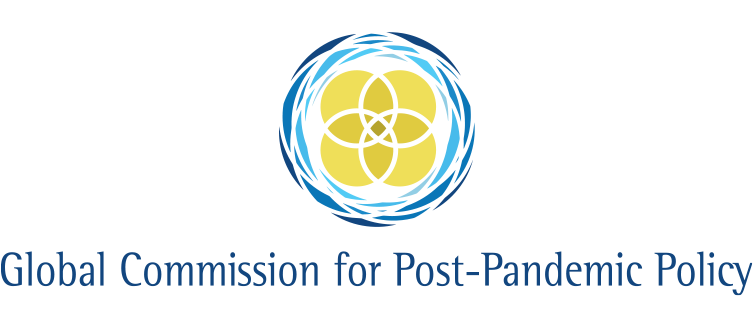New Times, New Norms
By Beverley McLachlin, Commissioner, GCPPP
This global pandemic has become the Great Revealer – that postwar institutions need revitalization, that democratic norms cannot be taken for granted and above all that we are all in this together
President Abraham Lincoln, in the throes of the American Civil War which pitted the old ways of slavery against new norms of freedom, wrote this:
The dogmas of the quiet past are inadequate to the stormy present. The occasion is piled high with difficulty, and we must rise with the occasion. As our case is new, so we must think anew, and act anew.
Lincoln saw clearly that the Civil War would utterly change the United States, and that in the new world that would follow, the old norms of racism and division would no longer suffice. A new reality would arise, calling for new ways of thinking and new norms. Lincoln was right. The tragedy is that he was only partially successful in persuading his countrymen and women to accept the new norm he proposed – equality for all. Instead of heeding Lincoln’s call to think and act anew, in the decades after the War a new regime of segregation and discrimination took root, complete with ugly images of white-hooded members of the Klu Klux Klan galloping forward on horseback, weapons raised and black fruit hanging from trees. As recent disruptions tragically demonstrate, the legacy of slavery still persists in the United States; despite important advances, racism and inequality have not been vanquished.
How different it would have been, one reflects, if Lincoln’s advice – that the dogmas of the past are inadequate to our stormy present – had been heeded. Some who came after the Civil War thought and acted in a new way, but too many sought to keep things just the way they were, blind to the fact that the past could not be restored and new norms were required.
Almost a century after the Civil War, the world found itself embroiled in another epic conflict that once more would shift the hitherto prevailing norms – World War II. That conflict arose in a late-industrial world that was local and slow. To be sure, motor vehicles were slowly replacing horse-drawn vehicles in 1939, and primitive – by our standards – aircraft were transporting a privileged few to places far from their homes. But much remained as it had been for decades. Men controlled business, industry, government and finance; women were largely relegated to the domestic sphere. Vast swaths of the world – think India and Pakistan, Africa and South Asia – still groaned under the yoke of colonialism.
World War II changed everything. Cars became faster, planes sleeker and swifter. Jets whisked vacationers and business people from one side of the world to the other in a matter of hours. Women, after a period of stasis imposed by returning veterans, assumed larger and larger roles in society, the economy and governance. And over-arching all the societal changes loomed the atomic and hydrogen bombs and a new threat – mass destruction.
Once again, the world faced a radically changed situation. The “case was new”, to quote Lincoln, and it required new ways of thinking and new ways of acting. If we were not to blow ourselves up, we needed to rethink conflict, war and ways to avoid the end of everything. Nations and statesmen rose to the occasion and created new multi-lateral institutions. The United Nations was born. Treaties aimed at deterring nuclear attack were forged. Global agencies like the Food and Agriculture Organisation and the World Health Organisation tackled problems of starvation and health. And as all this was happening, new nations emerged from colonial domination. Around the globe, millions of people dared to dream of freedom from oppression and want.
The Great Revealer
Seventy-five years after the end of World War II, the world is once again facing a radical challenge to norms we had come to take for granted. As we emerge from the COVID-19 pandemic, we are realizing that while we were too busy making deals and money to notice, the world had changed. COVID-19, it turns out, is not only a terrible scourge but is also the Great Revealer. It has revealed that the institutions crafted out of World War II, while still functioning, are old and tired and need of revitalization. It has revealed cracks in norms of democratic governance that we took for granted, as populism and extremism take hold. Above all, it has demonstrated that wherever we live in the world, we are all in this together.
If the fear after World War II was global nuclear annihilation, the fear now is global pandemic. The COVID-19 pandemic – and the recurring pandemics experts tell us we can continue to expect in the future – is a global phenomenon from beginning to whimpering end. We are used to seeing the same diseases in diverse parts of the world, but never before have we faced a disease that is transmitting itself everywhere at the same time, requiring every country to take the same precautions, lest we all fall victim.
COVID-19 may have been born in Wuhan, China, but the pandemic is a world phenomenon. Within weeks it had spread around the globe, affecting people everywhere. No population was exempt. Its cure – although it is unlikely it will ever be fully eradicated – is also global. Within days of China’s release of the genetic composition of the virus on January 10th 2020 labs in western countries were working on vaccines. The effort was built on global science – including the way international research on nano-technology allowed a new form of vaccine (messenger RNA) and was combined with learning from around the globe, proving Louis Pasteur’s observation that “science knows no country. It is a light that illuminates the dark corners of the world.”
But now we’ve run into a block. We have internationally developed vaccines for a global pandemic – new thinking and new action for a new case, as Lincoln would have put it. But at the stage of delivery, we are reverting to old nationalist norms. Nations and blocs of nations – largely in the affluent West – are adopting “us-first” attitudes, despite the fact that this does not make moral or practical sense.
Morally, we know that relegating poorer and developing nations to the back of the vaccine line is the wrong thing to do. And practically, we know it won’t work. In the past, the people of a nation might have been able to shelter from disease behind thickened borders. But we know this will not work for a global pandemic in a globalized world. None of us will be safe from COVID-19 until everyone is safe from it. Expert after expert affirms the same truth – the only way to defeat the disease is by a global attack. As long as there are nations or pockets of people where the virus is transmitting, there will be new cases, and even more frightening, new mutations, some of which may prove more virulent and indeed – the great fear – impervious to the vaccines which are our only hope.
We desperately need a new norm to replace our worn-out insular tribal norms. Global challenges require global solutions. It’s that simple.
To quote Lincoln once more: “The occasion is piled high with difficulty, and we must rise with the occasion. As our case is new, so we must think anew, and act anew.”
Photo by ElevenPhotographs on Unsplash
GCPPP Newsletter
We now publish a weekly newsletter to inform friends and supporters of the Global Commission’s progress and to provide updates when new content is published. Please sign up here:




 Fateme Alaie, Unsplash
Fateme Alaie, Unsplash



